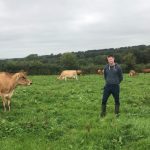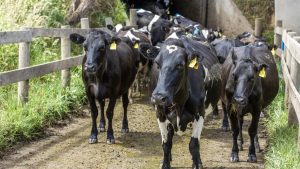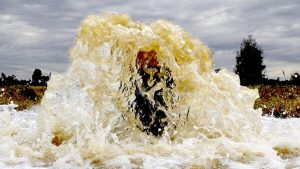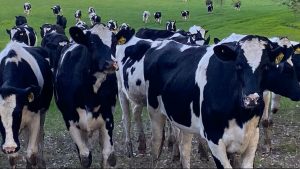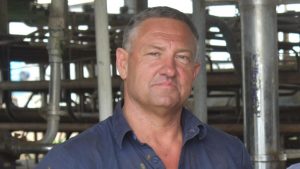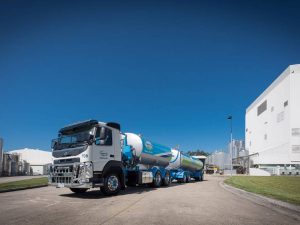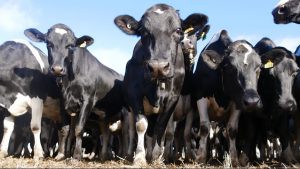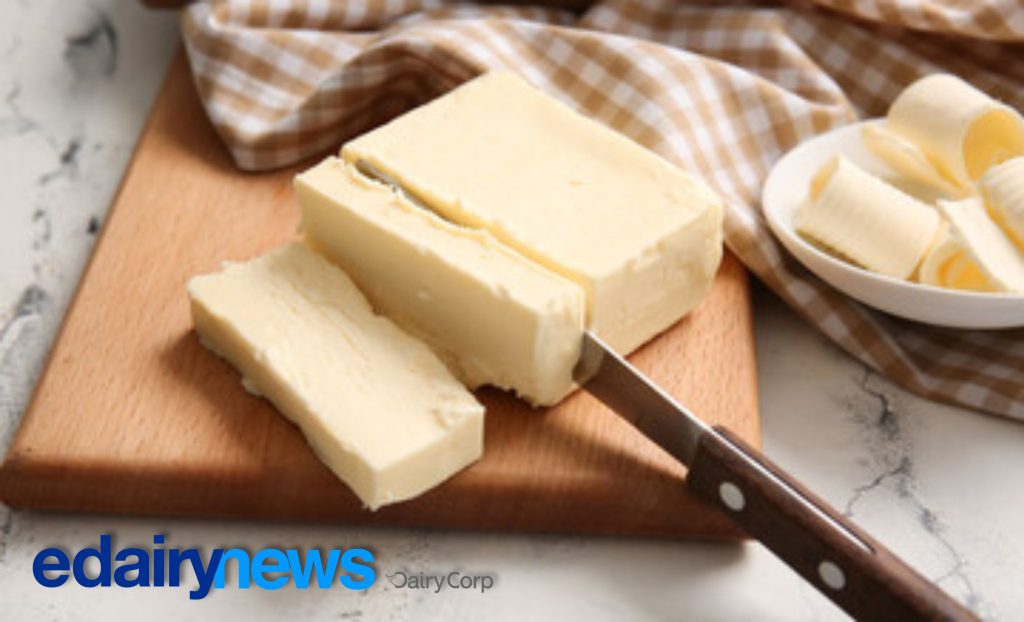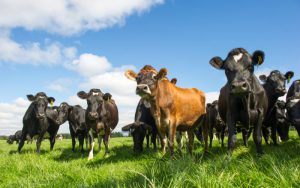
Happily Heifer After co-founder Michelle Dranfield said the hens were rescued after a farmer proactively offered them to the charity.
She said the decision meant the animals were not abandoned or left to deteriorate like many others the charity had received in the past.
“The animals that come to us as what’s considered waste products, [which] are generally not in good condition,” Ms Dranfield said.
“So things like the older hens from the egg-laying industries, the male calves from the dairy industries, the older cows from the dairy industries.
A short existence
According to the RSPCA, 72 weeks is the average life of a commercial layer hen, because productivity levels begin to decline after that.
Happily Heifer After volunteer Karli Furmage said about 60 hens from their recent rescue were healthy enough to be rehomed and 12 were being rehabilitated in the charity’s makeshift “chicken hospital”.
“Their condition wasn’t great … We got 82 and 15 were not fit for re-homing initially, so that percentage is very, very high … Normally there’s about three to five [in] every 100.
“It was a free-range farm but depending on the farm, that term is very kind of loose.”
She said the most common disease the rescued hens were experiencing was egg yolk peritonitis.
“Basically their bodies can’t quite keep up with the production of eggs that they’re making and their body creates an incorrectly formed egg which dislodges into the abdomen and then actually rots from the inside,” she said.
Working together
Ms Dranfield hopes to work with other farmers to rescue more hens in future.
“We are hoping to create relationships with other farmers so that we can do quarterly runs where we can try and save as many girls as we can,” she said.
“We are hoping to collaborate and rescue 3,000 hens from a farm.
“Obviously, that’s just going to depend on how many homes we can get so the more adoptive homes we can get, the more hens we can save.”
Due to border closures, the charity recently formed a partnership with NSW-based chicken rescue group, Who Gives a Cluck, after it could not enter Queensland to collect hens from a Mount Cotton farm.
Ms Dranfield said the ultimate goal was to rehome animals as ongoing costs and finite space at the sanctuary were other hurdles.
Happily Heifer After has been operating for three years and recently became a registered charity. Its founders mostly fund the operation, which costs an average of $15,000 a month.
“We do things like open days, we sell mech on our website, we have sponsored programs where people can sponsor an animal … and pay for their treatments and their feed.
“The more animals we can rehome the more we can save because if we just kept them all here, then we would just run out of space eventually.”


